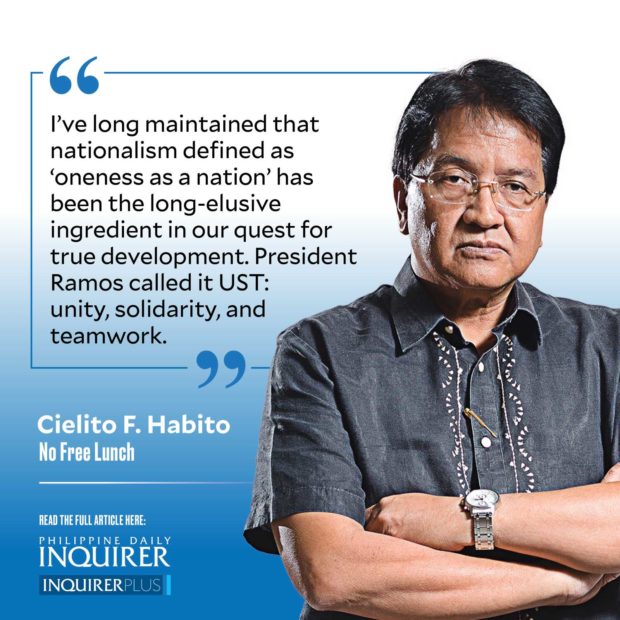Our most neglected capital
My Ateneo economics faculty colleagues and I are putting together a white paper that we hope to contribute toward the crafting of the new Philippine Development Plan, which the President, in one of his earliest official edicts, has already directed the National Economic and Development Authority to formulate. In it, we take a “capital-based approach” to identifying our current challenges and defining corresponding imperatives for the short, medium, and long term. What this means is that we are approaching our development challenge by taking stock of the five forms of capital any economy and society possesses, and building our analysis on the basis of bolstering those capitals.
What are these forms of capital? These are our financial, human, natural, physical, and social capital, which neatly sum up the various dimensions of development that every economy and society pursues.
Financial capital is the most familiar form of capital to all and includes financial assets, instruments, and resources (including loans, bonds, stock, expenses, assets, equity, and cash flows). It can also be more broadly defined to cover the enterprises and economic activities that produce goods and services and provide jobs that generate incomes for everybody.
Human capital has to do with our people’s health, knowledge and wisdom, skills, and motivation. All these are needed for productive work, but more than that, are essential to the attainment of human happiness and well-being. I’ve heard people object to economists’ use of the terms “human capital” and “human capital development,” on the argument that it dehumanizes people as mere factors of production needed to produce economic goods and services. They assert that human development (without “capital” in between) via improved health, education, and housing is an end in itself, denoting a happier and more fulfilling life, rather than just a means to raise economic output. Higher gross domestic product or GDP, after all, does not necessarily lead to greater happiness (which has led to advocacies for the assessment of “gross national happiness” instead).
Natural capital refers to our stock of natural assets, which include our land with its soils and minerals, our coastal and inland waters, our air, and all living things growing and thriving within them. It is important to both grow and sustain our natural capital if human needs and wants are to be adequately met for the present and all future generations yet to come.
Physical capital consists of our built assets in various forms of infrastructure, including energy and power; transport facilities; water supply, sanitation, and irrigation; communications hardware and software; and all other buildings, equipment, vehicles, and physical assets needed to produce the economy’s goods and services, and service human needs.
Lastly, social capital consists of society’s shared values, norms, trust, belonging, and participation that create social cohesion and harmony. It is about relationships, networks, community, civic engagement, information flows, and institutions that foster cooperation and collective actions in pursuit of shared goals. This form of capital is perhaps the least understood and appreciated of all, and often neglected in the government’s pursuit of development. Underlying it is trust, and research has shown that the level of trust in society highly correlates with economic growth—and here, our country rates low. On the question “Can most people be trusted?” in the 2017-2022 World Values Survey, only 5.3 percent of the Philippines said yes, against Thailand’s 28.9, Singapore’s 34.4, and China’s 63.5 percent. My colleague Dr. Nandy Aldaba traces our history of social division and fragmentation to persistent economic inequality; social injustices; differential access to good education and its outcomes; corruption, political dynasties, and bad governance; and anti-elite and anti-oligarchy messaging in social media compounded by disinformation.
I’ve long maintained that nationalism defined as “oneness as a nation” has been the long-elusive ingredient in our quest for true development. President Ramos called it UST: unity, solidarity, and teamwork.
cielito.habito@gmail.com

















